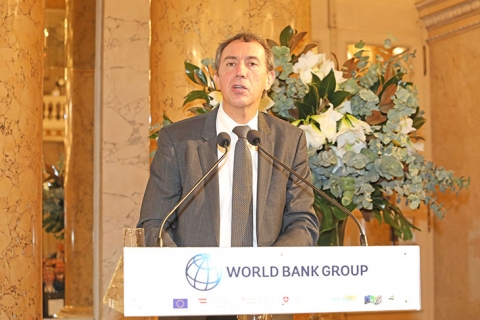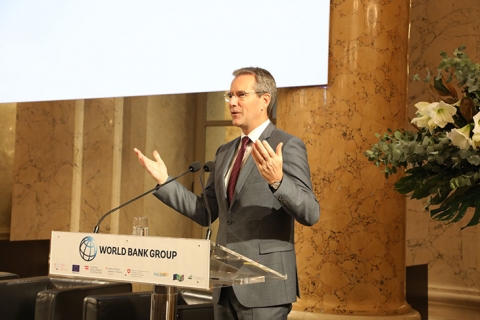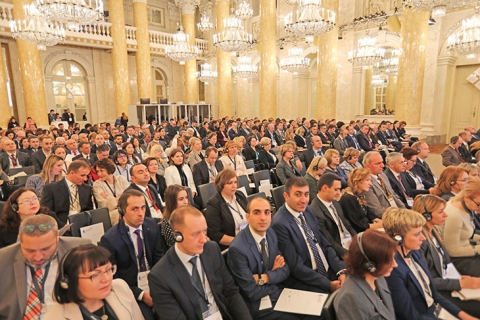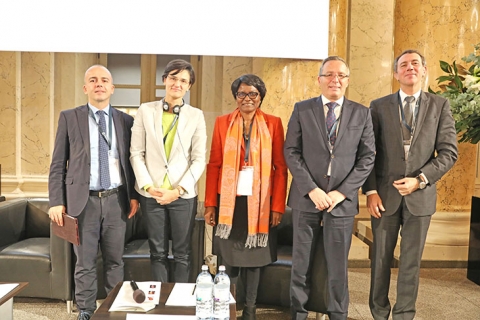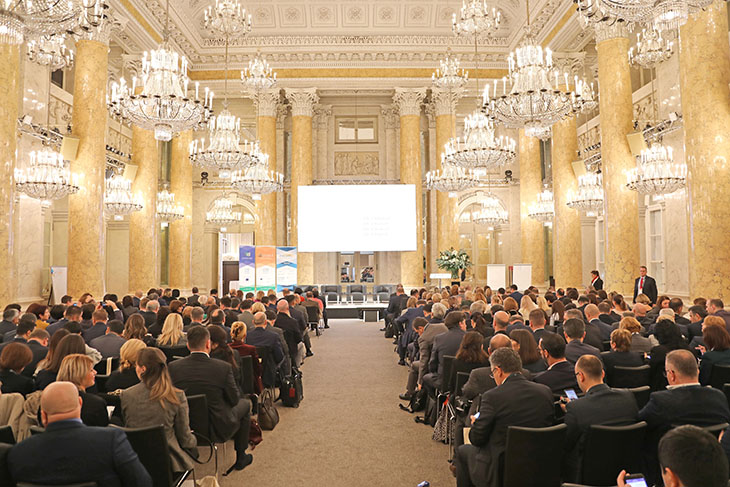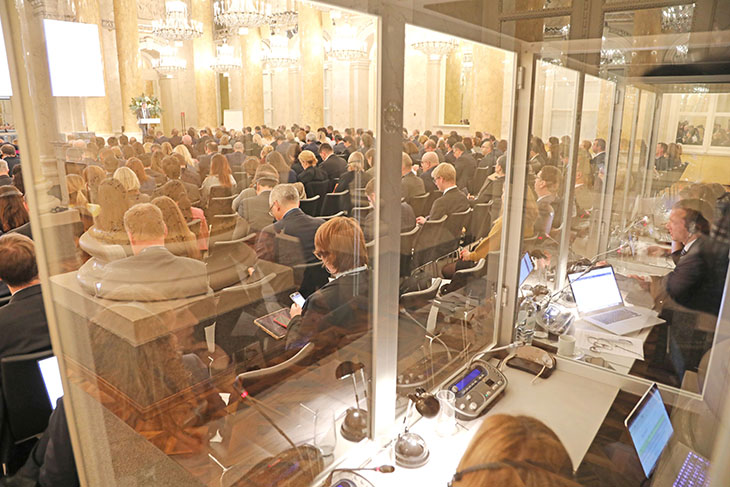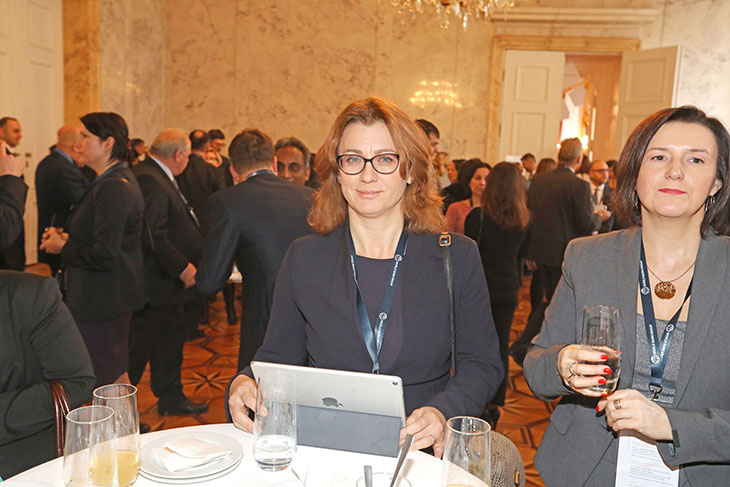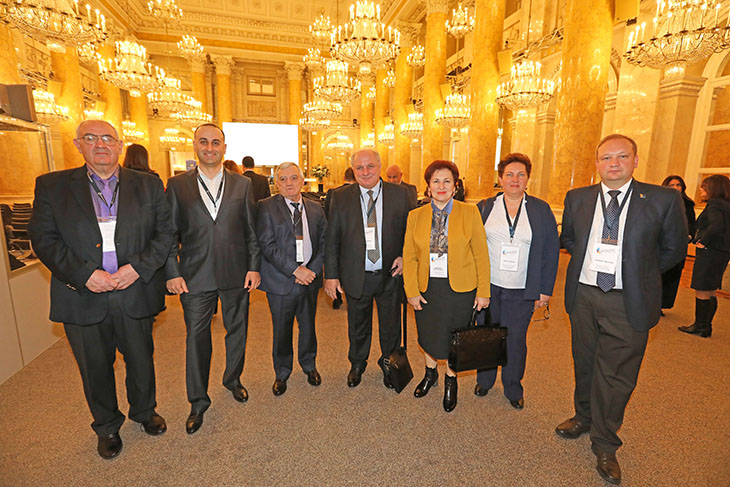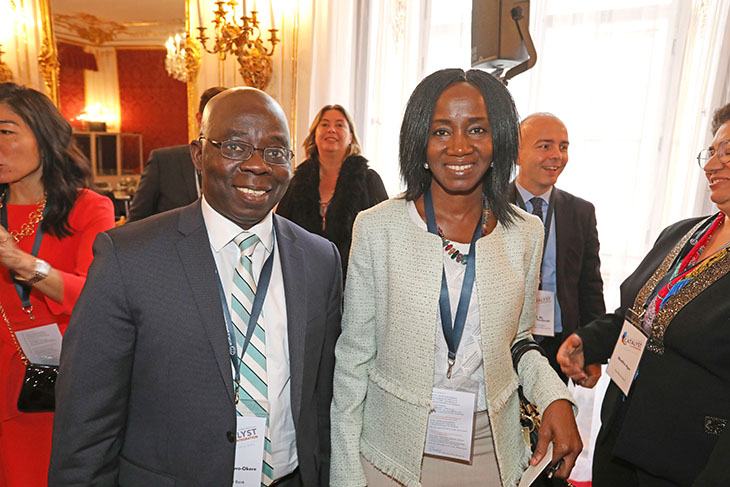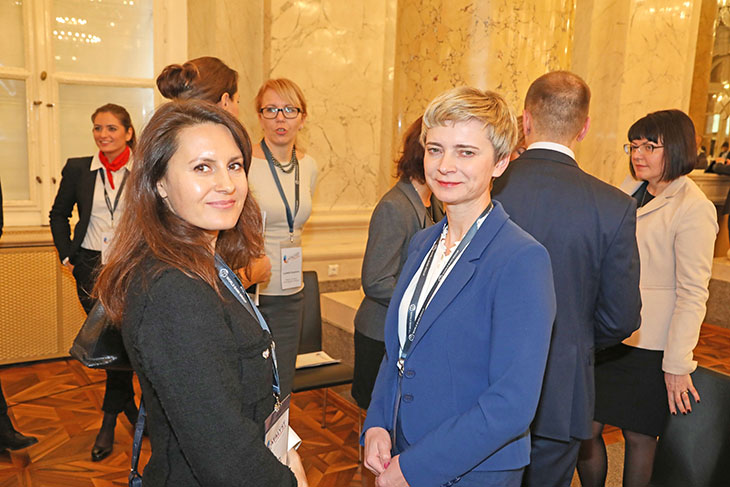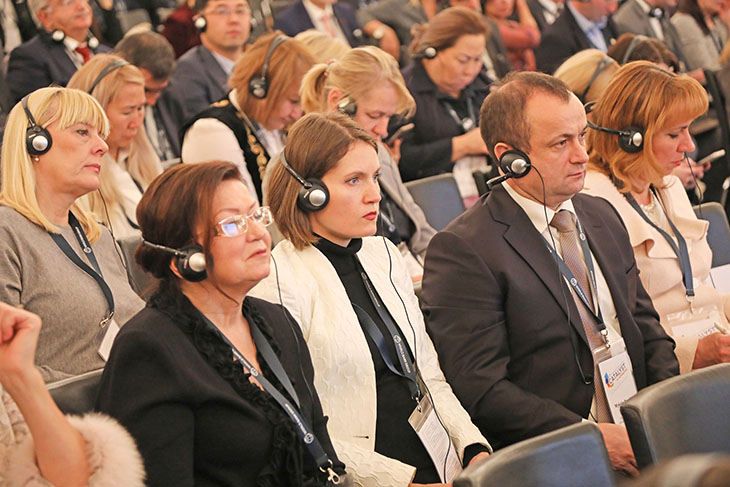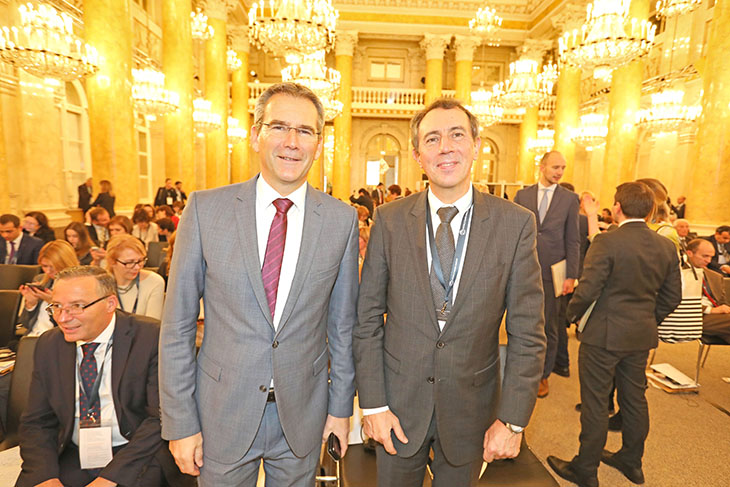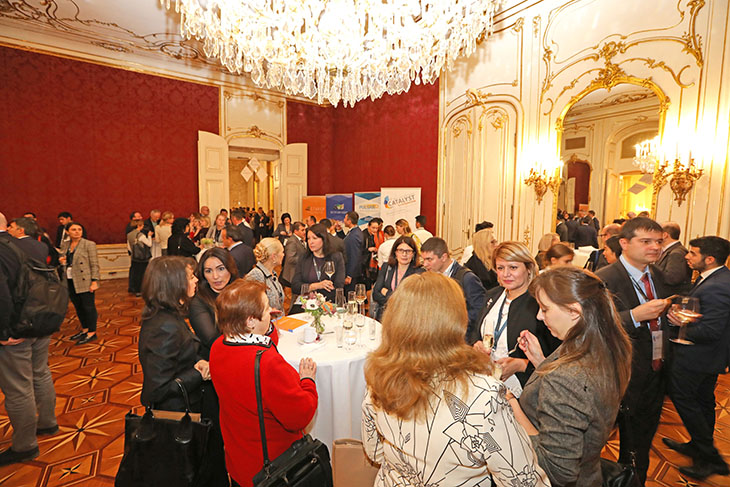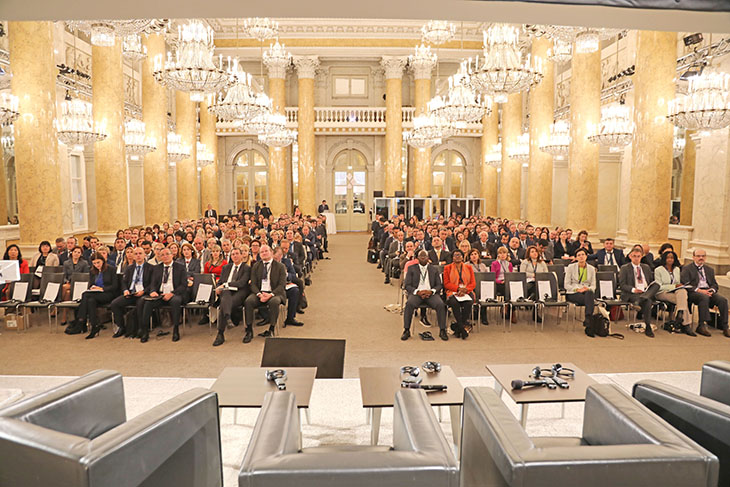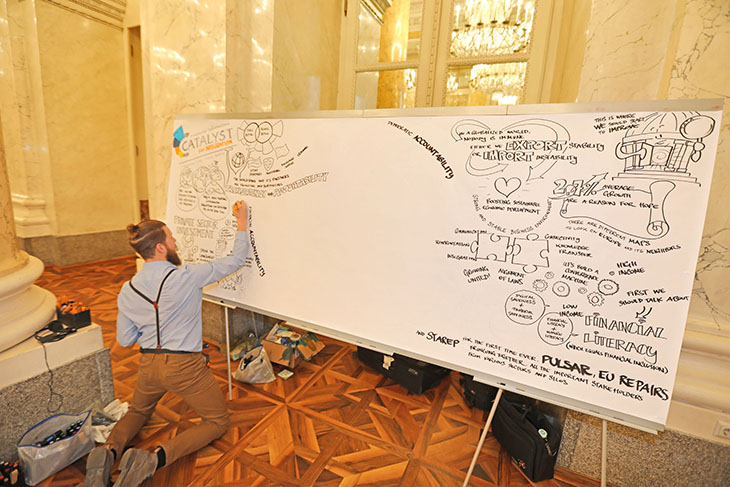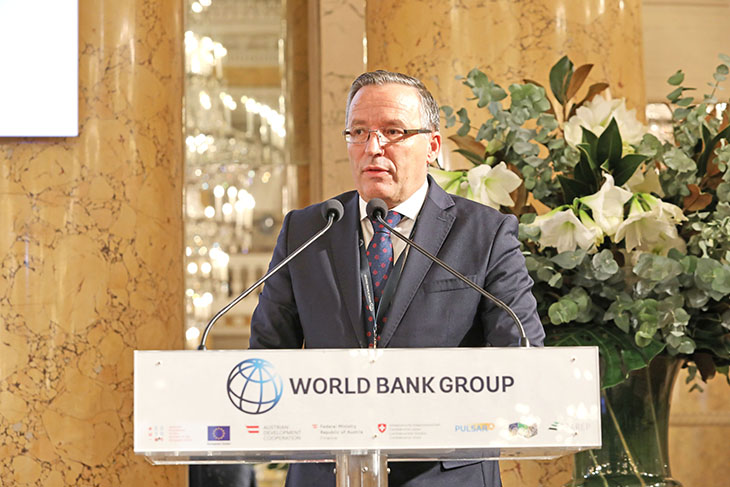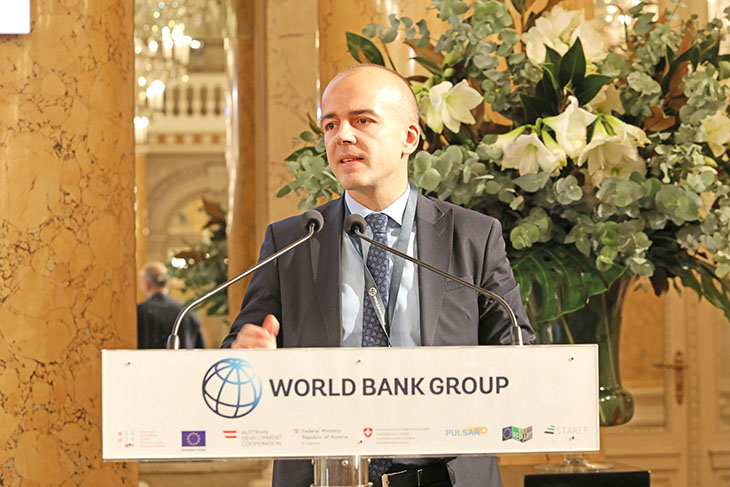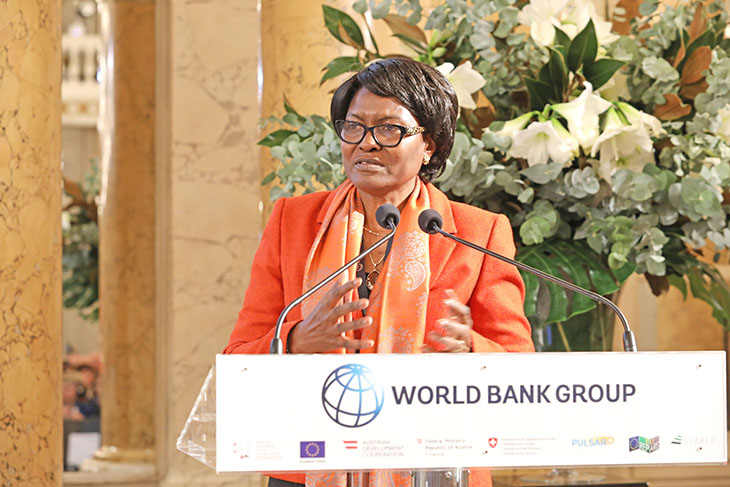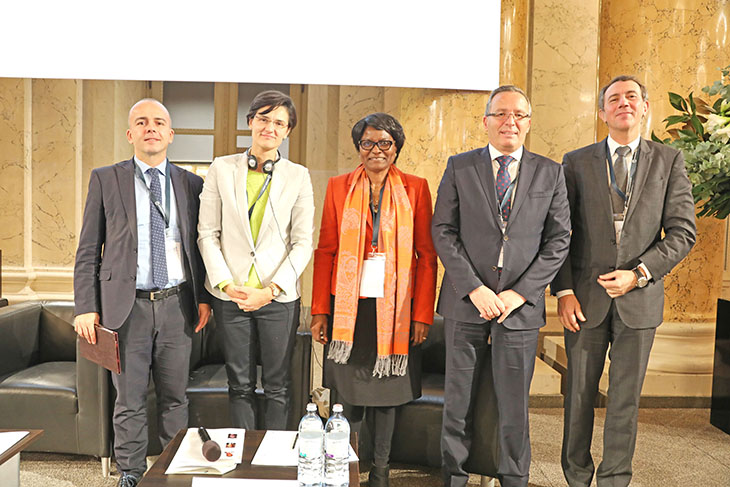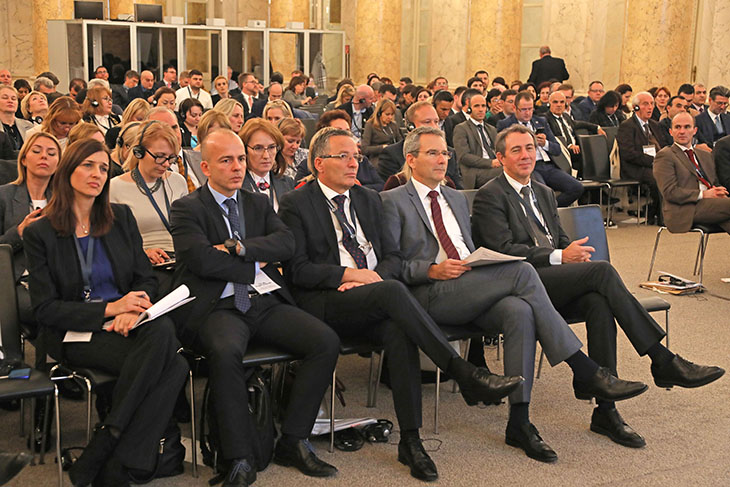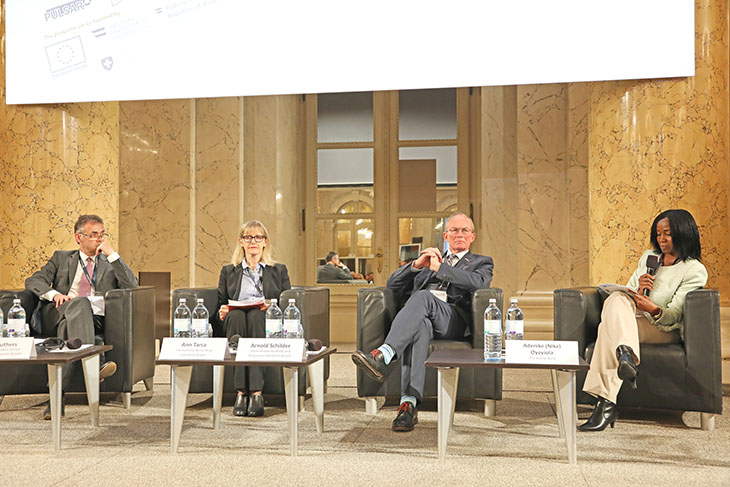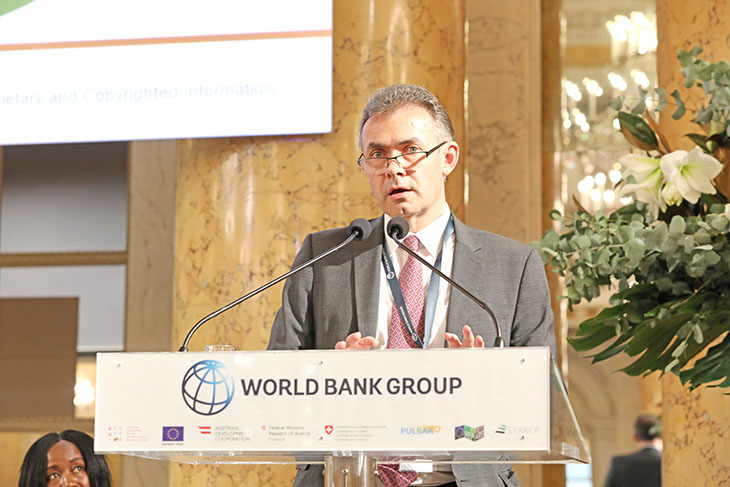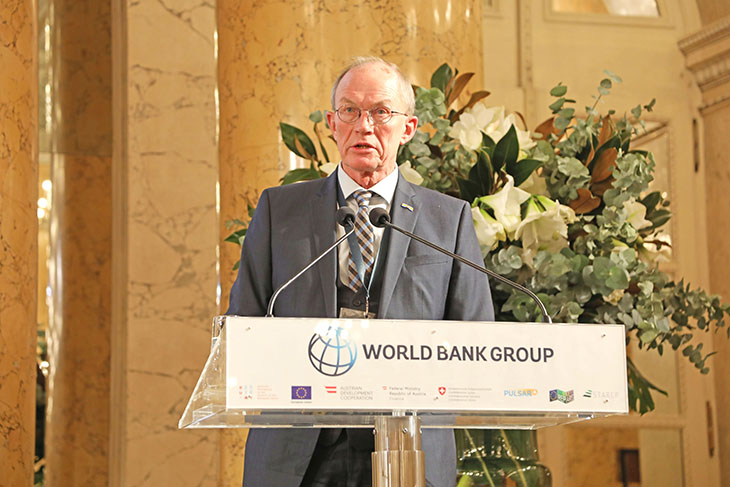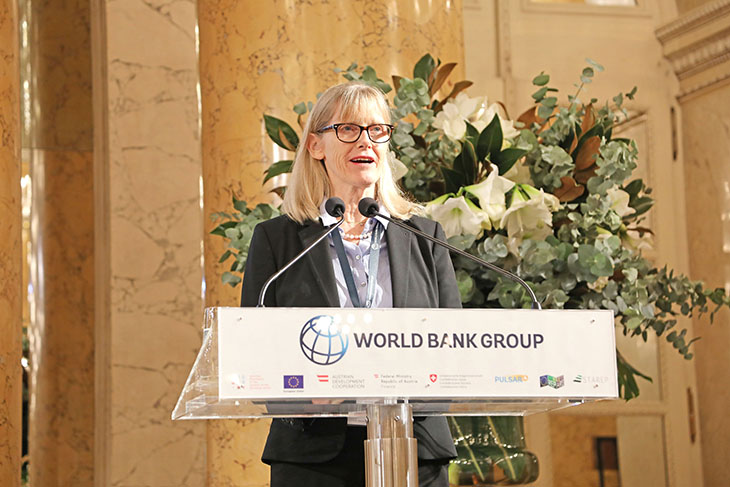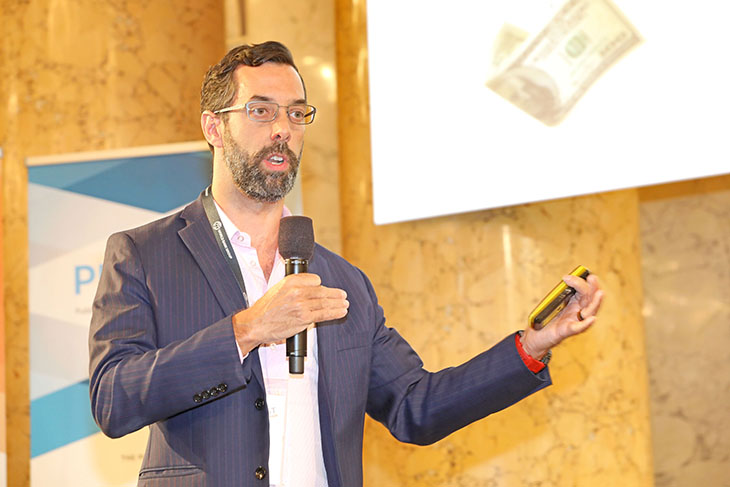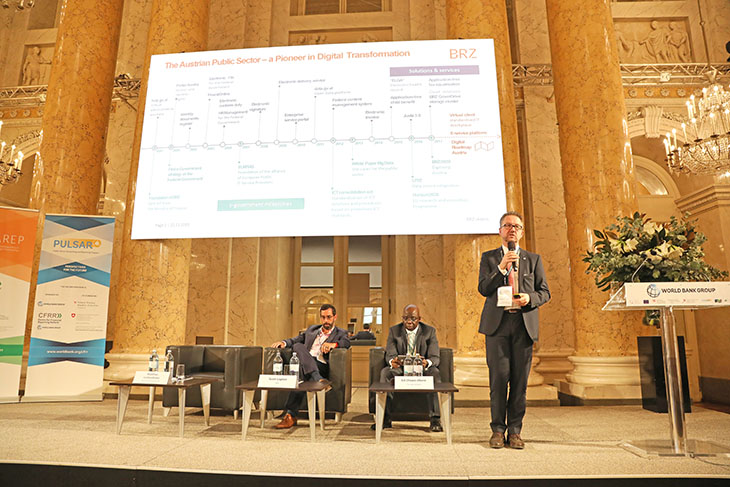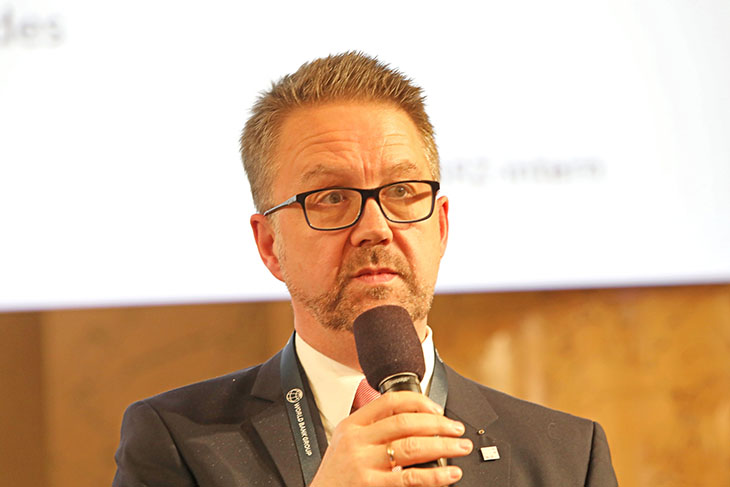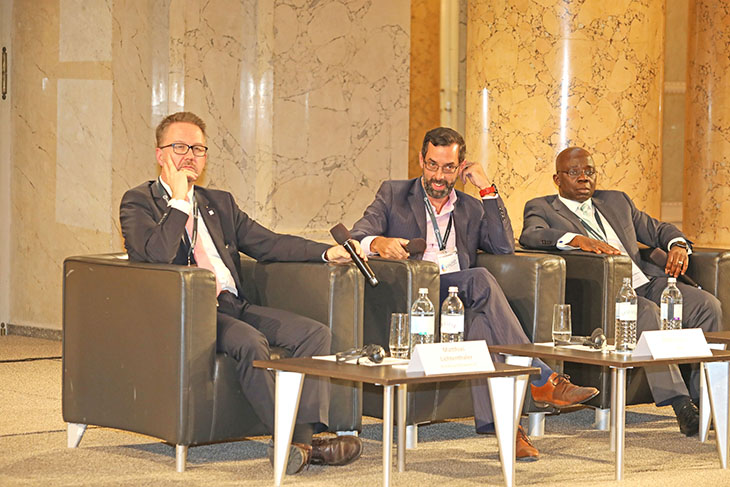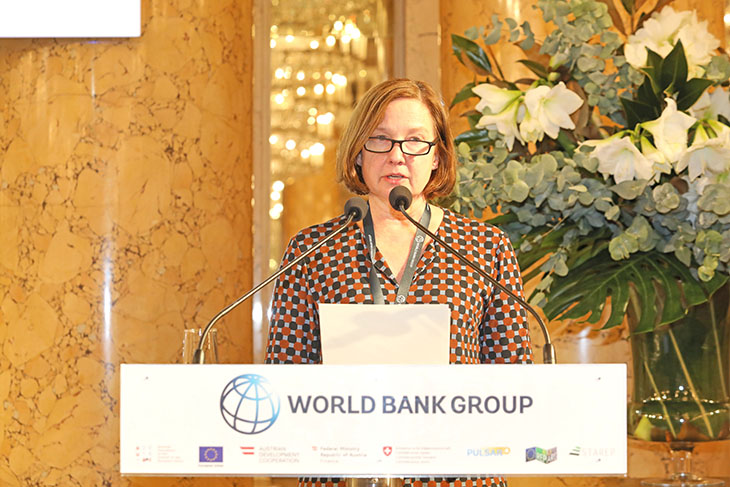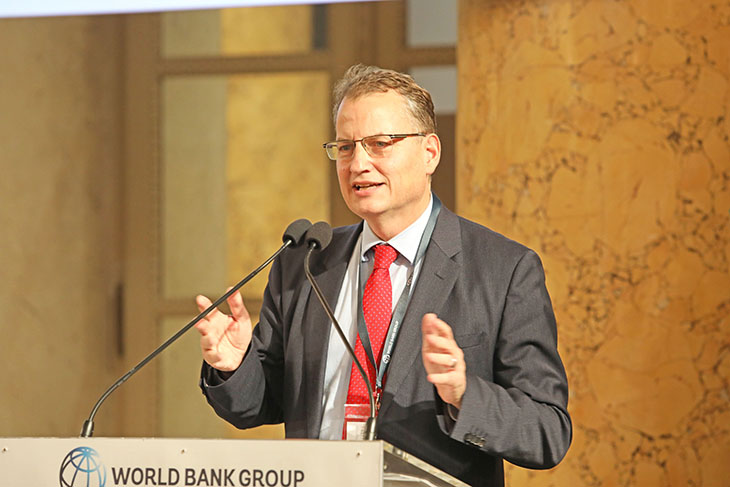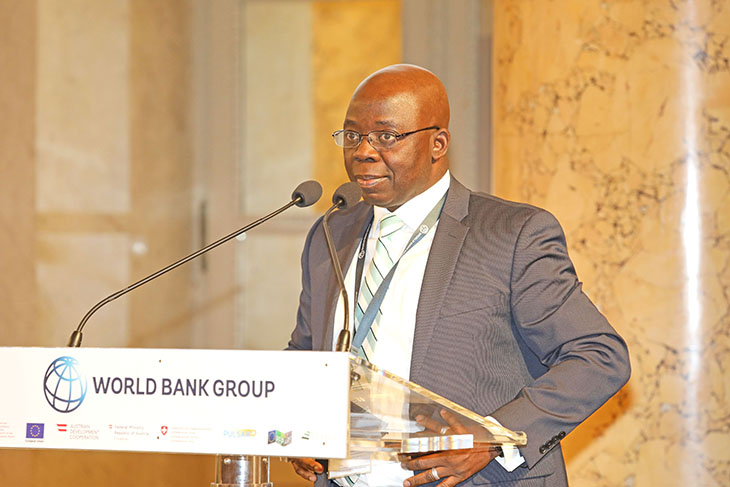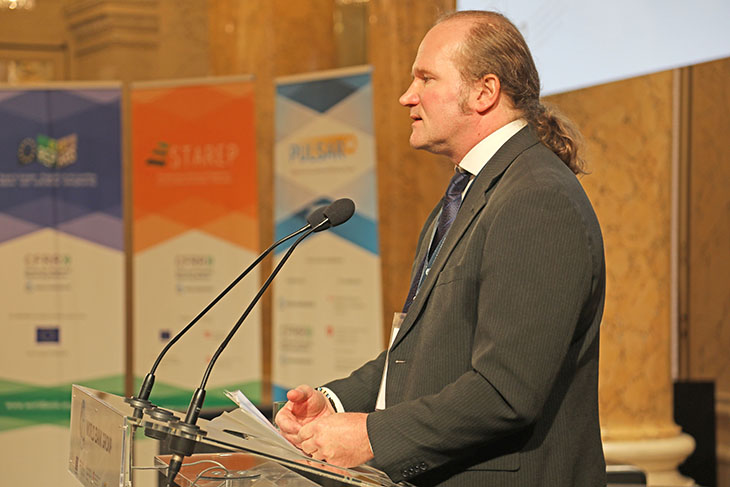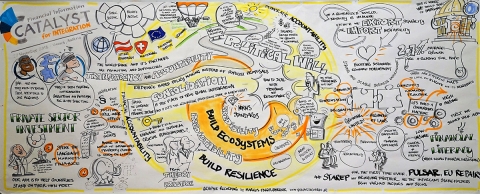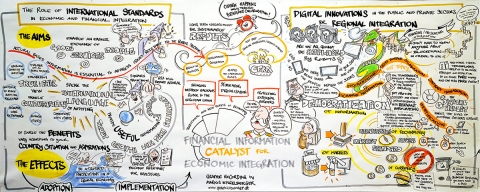
On 27 November 2018, the biennial Ministerial Conference took place under the auspices of the Austrian Presidency of the Council of the European Union (EU). It was organized by the World Bank’s Centre for Financial Reporting Reform (CFRR). About 300 delegates including ministers of finance, senior government experts, and representatives of the business, professional and academic communities gathered to discuss the role financial information plays in supporting economic development, regional and global integration of economies, and convergence of income and living standards between poorer and richer countries.
“The European Union offers powerful examples on how economic integration can help propel growth in poorer and newer member states. While integration can help these countries boost their income and living standards, convergence with richer economies is not automatic,” said Cyril Muller, World Bank Vice President for Europe and Central Asia. “Policy makers must equip their citizens and enterprises to compete through transparent and effective public initiatives to build skills and competitiveness. High-quality financial information for the public and private sectors can help governments deliver on these initiatives with accountability and efficiency, while improving access to finance."
Addressing the audience on behalf of the Austrian Presidency of the Council of the European Union, Hartwig Loeger, Minister of Finance of Austria, said, “As a long-term partner of the CFRR, the Austrian Government is excited to see the strong interest and continued level of commitment from the countries represented today to achieving reform in their public and private sector financial reporting systems. The Austrian Ministry of Finance contributes to advancing the closer integration with our neighbors, by supporting selected programs of the World Bank Group that are focusing on the ECA region and the Western Balkans in particular.”
Conference participants discussed how countries can earn the confidence of their citizens by strengthening their institutions and creating a regulatory environment that facilitates fair and open competition; reducing undue burdens on business, particularly small and medium-size enterprises; facilitating access to finance; and delivering needed public services more efficiently. Effective financial management and good governance in both the private and public sectors help make institutions become more transparent, accountable and trusted.
Policy makers are well-aware of their role in embracing and implementing effective legal frameworks and regulations. A high-level panel discussion with Ministers of Finance from Kosovo and the Former Yugoslav Republic of Macedonia confirmed the main conference messages and discussed specific initiatives under way. Bedri Hamza, Minister of Finance of Kosovo, said, “The redrafting of the law on accounting, auditing and financial reporting in a way that also reflects the local environment and conditions has been a great achievement for Kosovo and there are ongoing efforts to strengthen the capacity of the Kosovar Oversight Institution and set up a quality assurance system.” Dragan Tevdovski, Minister of Finance of the Former Yugoslav Republic of Macedonia, highlighted that “the country enacted a new audit legislation that established a professional institution for statutory auditors and initiated a quality assurance system for the audit profession, which are excellent achievements. Ongoing amendments to the Law on Performance of Accountancy Services and work to strengthen the capacity of the Institute of Accountants and Certified Accountants is high on our priority agenda with the intention to significantly improve the quality of financial information data in our country.”
Discussions also included the impact of digital innovation on generation, dissemination, verification, and use of financial information; new opportunities to create more transparency and accountability in the public and private sectors; and the role international standards play in economic and financial integration.
The Ministerial Conference was recorded graphically by a visual consultant who illustrated the main messages of the morning and afternoon sessions.
The following side events took place before and after the Ministerial Conference 2018:
Senior Officials’ Workshop
Monday, 26 November 2018, Hotel Intercontinental — The Senior Officials’ Workshop were aimed at sharing progress and exchanging experiences. Participants included senior government officials responsible for carrying out public and private sector accounting and auditing reforms.
Executive IFRS Workshop for Regulators
Monday, 26 November 2018 and Wednesday, 28 November 2018, Hotel Intercontinental — For the sixth consecutive year, the World Bank’s Centre for Financial Reporting Reform (CFRR) and the IFRS Foundation held a workshop on the use of IFRS (International Financial Reporting Standards) by financial regulators. It aimed to enhance participants’ understanding of current and upcoming IFRS and differences with prudential regulations, and provided them with tools to improve the effectiveness of regulation. This workshop was designed for senior staff of regulatory agencies responsible for supervising banks and insurance companies, as well as those in charge of drafting accounting and prudential regulations, in Europe and Central Asia.
STAREP and PULSAR EDUCOP
Wednesday, 28 November and Thursday, 29 November 2018, Hotel Intercontinental — Participants of the STAREP EDUCOP included representatives from universities, professional accountancy organizations (PAOs), and regulators involved with accounting education reforms. The workshop aimed at improving training, education, and continuous professional development aligned with international standards and good practice in private sector financial reporting. It provided participants with tools and examples to assist them with the implementation of competency-based programs in areas ranging from university education to continuing professional development.
The PULSAR EDUCOP convened representatives of Ministries of Finance, universities and PAOs to further explore the development of quality public sector accounting (PSA) education programs in participating countries. The workshop aimed to improve training, education, and continuous professional development aligned with international standards and good practice in public sector financial reporting.
Joint STAREP AACOP, PULSAR FINCOP, EU-REPARIS FRCOP
Wednesday, 28 November 2018, Hotel Intercontinental — Participants included practitioners and technicians of beneficiary countries dealing with reforming financial reporting and auditing and involved peer assisted learning in face to face meetings. The event covered the evolving challenges faced by the accounting profession, and the impact of technology in shaping public and corporate accounting and auditing.
Thursday, 29 November 2018, Hotel Intercontinental — The event focused on audit quality assurance systems and processes. The workshop also covered progress and results of reforms achieved by EU-REPARIS and STAREP countries.
Disclaimer: This webpage was created and maintained with the financial support of the European Union. Its contents are the sole responsibility of CFRR and do not necessarily reflect the views of the European Union.
